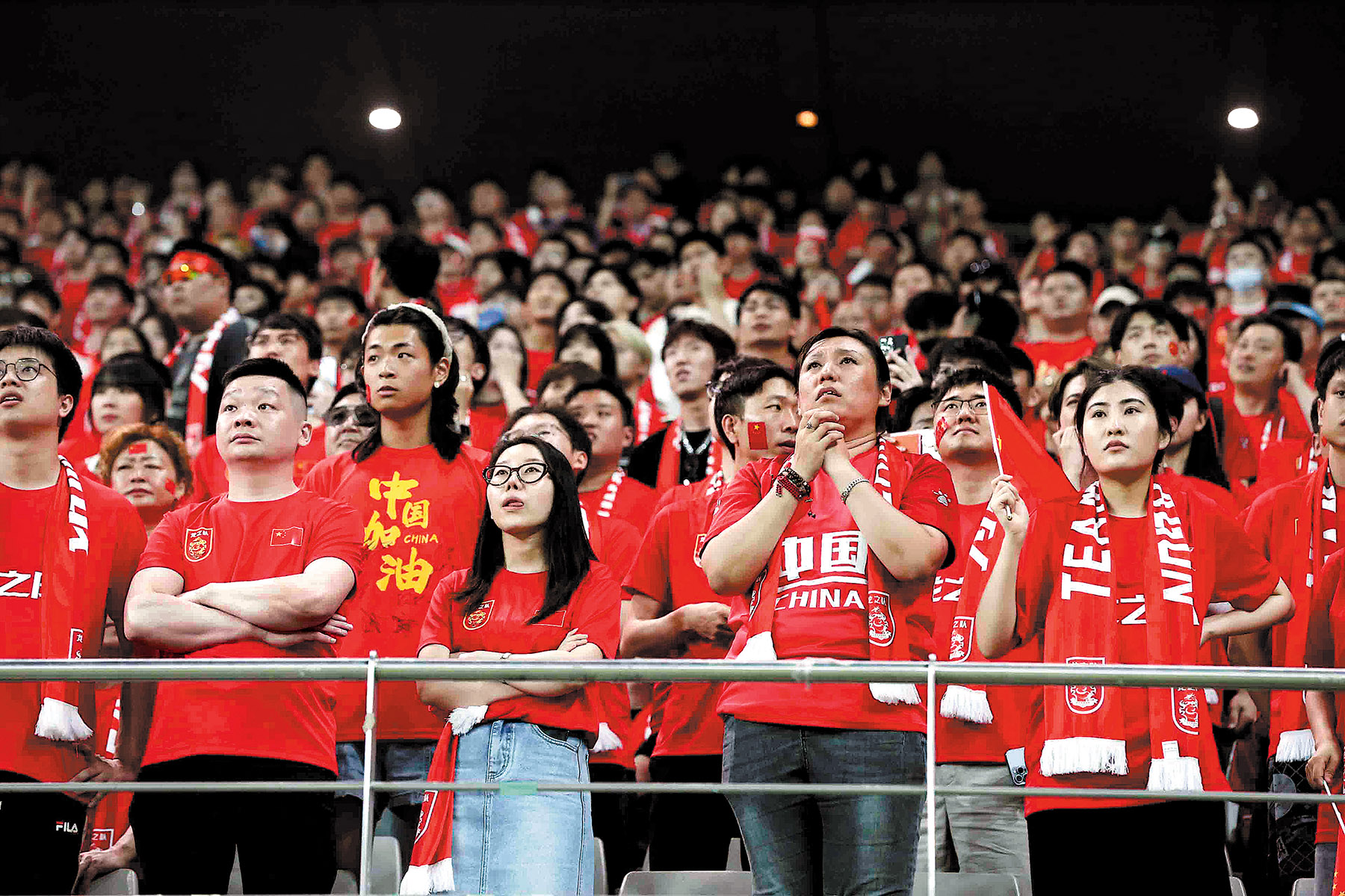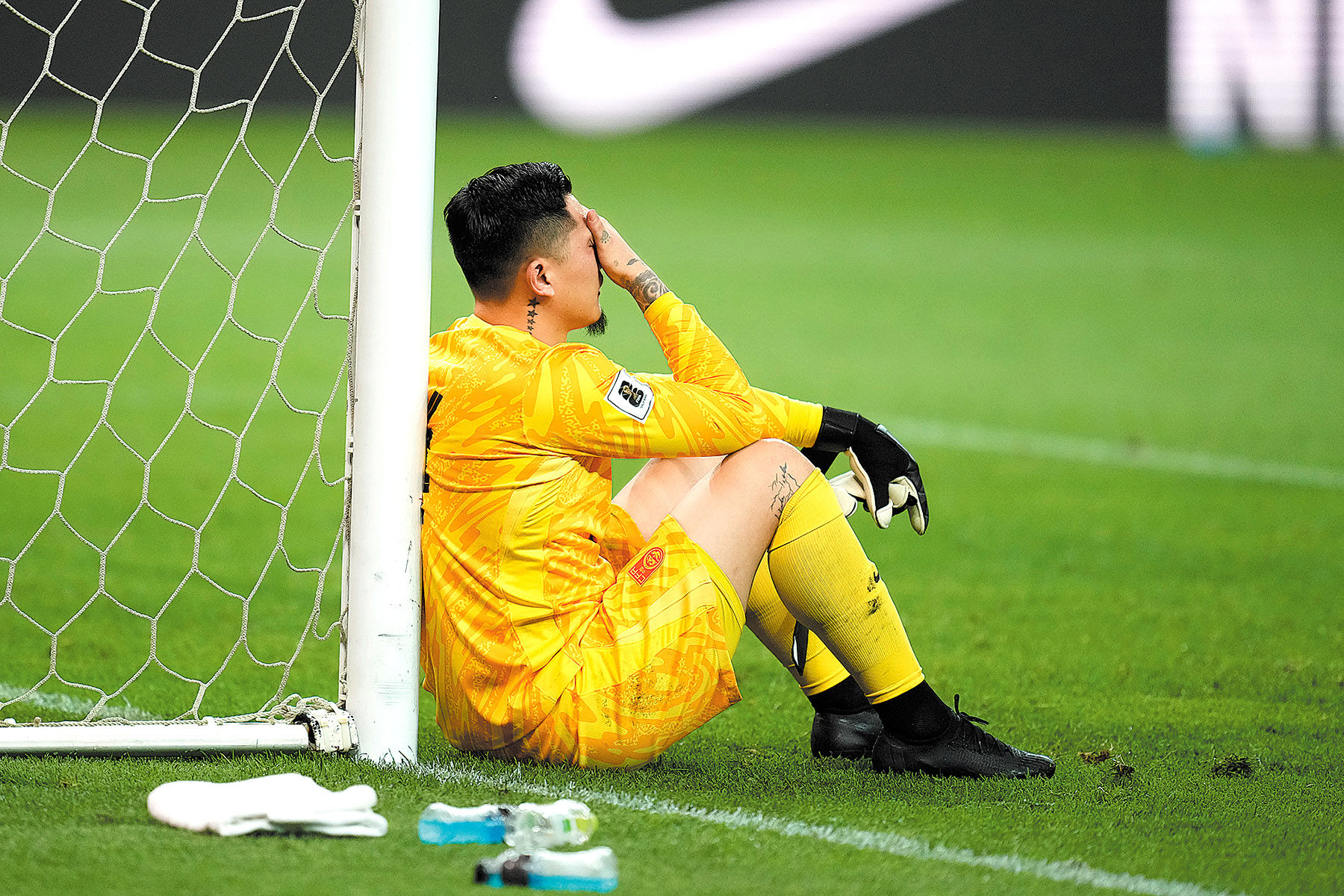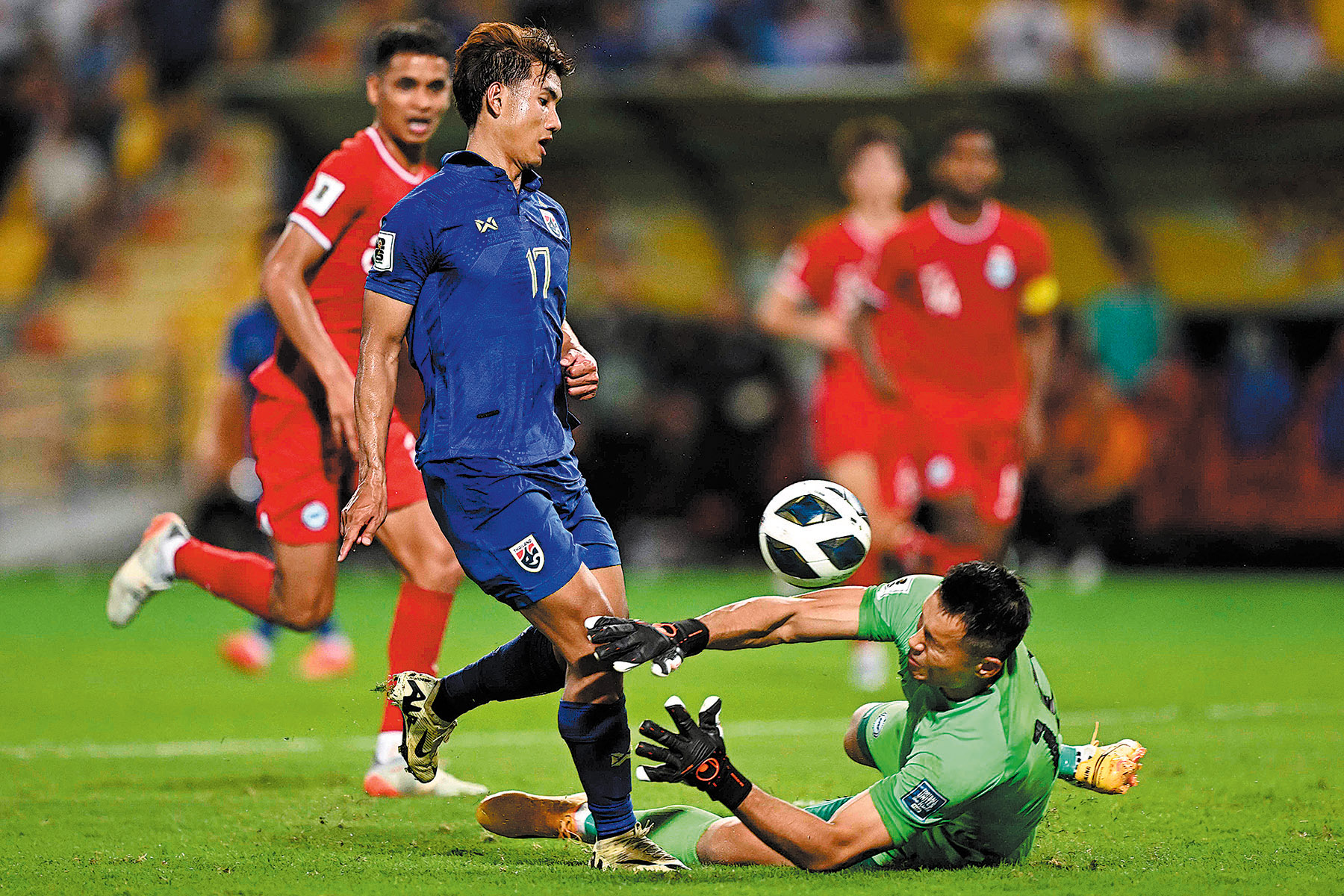Ivankovic’s men sneak into next round of Asia FIFA World Cup qualifiers, thanks to Singapore

Team China’s odds-defying survival in the fight for FIFA World Cup qualification has given long-suffering fans a way overdue reason to celebrate — though not yet enough to save the game’s declining domestic profile.
Defeated, yet still breathing — the Chinese men’s soccer team finished a dramatic night on June 11 as a lucky loser, despite a 1-0 loss to South Korea, as it squeezed into the next round of 2026 World Cup qualifiers by the narrowest of margins, thanks to two helping hands from Singapore.
About an hour after its defeat to South Korea in Seoul, Team China and its beleaguered fans were left with mixed feelings after a different group match ended in their favor. Singapore prevented Thailand scoring a crucial fourth goal in a 3-1 loss in Bangkok, helping China to clinch a second-place finish in Group C thanks to its thin head-to-head edge over Thailand’s War Elephants.
Failing to convert its relentless attack into more goals against the bottom-placed Singapore, Thailand tied with China on points, goal difference, and goals scored after six games — falling short due to its loss to China in their first meeting of the qualifying phase.
Making it to the third qualifying stage, though not under its own steam, Team China has kept its World Cup hopes alive for at least 10 more matches, which will be played over the next 12 months.
The next phase kicks off on Sept 5
with 18 teams, drawn into three groups, vying for six direct qualification berths, which will be awarded to each group’s top-two finishers. The third- and fourth-placed teams will face a fourth phase for the remaining two spots at the expanded 48-team 2026 World Cup.
Ranked 13th in Asia and 88th worldwide, Team China faces incredible odds to claim a direct berth against the continental heavyweights that will dominate the next phase. Regardless of the draw, which will be decided on June 27, for many, progression is a stay of execution.

Its presence on the highest continental stage, though, matters for the country’s ambitious plan of rejuvenating men’s soccer after a never-ending string of disappointments in qualifying for, and performances at, major tournaments. It is also a step further on the path to redeeming the image of the game in the face of recent high-profile corruption scandals.
Chinese fans deserve some solace, having witnessed the side fall short in five World Cup qualifying campaigns in a row.
“I know the Chinese men’s team has been struggling in recent years on the international stage, and it was a challenge for me to take it over,” Team China’s head coach Branko Ivankovic said at the post-match news conference on June 10.
“But, I do believe that Team China has its own strength and some quality players, and that it can be built into a stronger force and play better games.
“I believe we are a better team than how we played, and that we could rank within the top-10 in Asia.
“To reach our next goal, and achieve a better result that matches our level (in the next phase), we need to select our players wisely, have more training and warm-ups,” said the 70-year-old Croatian, who has overseen one win, two draws and a loss since being appointed in February.
Playing against world No 23 South Korea, with the qualifying hopes hanging by a thread, Team China began defensively, hoping to grind out a draw with the Taegeuk Warriors and claim the point that would ensure they finished ahead of Thailand.
After keeping South Korea’s lethal combo of Son Heung-min and Lee Kang-in at bay in the first half, China’s resilient defense cracked on 61 minutes, when Paris Saint-Germain midfielder Lee scored to ensure that South Korea enter the final qualifying stage unbeaten with five wins out of six games.
Given the gap between the two teams, and China’s all-time losing record against South Korea, a 1-0 loss on the road would have been an acceptable outcome in any other scenario.
However, Chinese players left the pitch at the final whistle anxiously awaiting results elsewhere. Thailand led Singapore by a single goal at halfway in Bangkok — on course to edge China out by scoring two more goals in the remaining 45 minutes.
Thailand did indeed find the net twice in the second half, but a 57th-minute, 20-yard rocket from the boot of Singapore forward Fandi Ahmad, and a flurry of spectacular saves from veteran goalkeeper Hassan Sunny in the dying minutes, came to Team China’s rescue.

Fandi’s long-range strike proved costly for Singapore, who laid siege to the Singapore goal, but could not find a vital fourth, much to the disappointment of the home fans in Bangkok’s packed Rajamangala Stadium.
“This was what we deserved, and what we’d expected to experience after failing to beat Thailand at home,” Team China goalkeeper Wang Dalei said of the mental anguish of waiting for the result of the other match.
“Defensively, we started well. Our double-team strategy on Son worked pretty well, containing him and preventing him from causing any serious damage,” he said.
“Our young players, in particular, did a good job today. Hopefully, they can continue to make a further contribution to the national team going forward.”
On June 6, Team China failed to secure progression with a match to spare. The host drew 1-1 against Thailand after Brazilian-born forward Fei Nanduo blasted a second-half penalty into the stands.
Thanks to his impressive performances, Singapore’s goalie Hassan, who pulled together 11 saves to deny a frantic Thailand from scoring a crucial fourth, went viral on Chinese social media immediately after the match for “single-handedly safeguarding Team China’s qualifying hopes”, according to posts by Chinese fans.
After the game, Hassan’s personal social media account has been flooded with thank-you messages. The goalie runs a stall selling Muslim food in Singapore. Some Chinese fans posted the pictures and address of Hassan’s stall, calling for Chinese tourists to visit it and give it “five-star” reviews.
According to Chinese online travel agency Ctrip, as of lunchtime June 11, over 20 percent of car-hailing services from Singapore Changi International Airport ordered by Chinese visitors were destined for Hassan’s food stall.
In response to Chinese fans’ heartfelt gratitude, Hassan said “Thank you, China” in a short video posted by his teammates after the game. One of his teammates can be heard in the video saying “he saved China”.
The social media accounts of the Singaporean embassy in China and the Singapore Tourism Board on China’s Weibo platform also received a flurry of thank-you messages from Chinese football fans.


